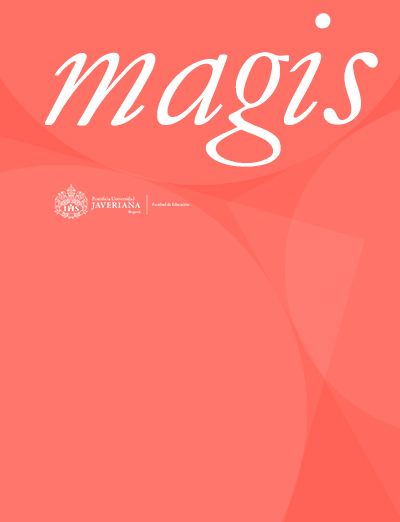Abstract
In the face of the leading role assumed by digital platforms and technologies in the context of schools, the aim of this quantitative study was to employ a survey of 2041 Portuguese students at the primary and secondary levels to find out which digital technologies they most widely used, the reasons why they used them, and their respective advantages and disadvantages. The results show that the youngest students mainly used them to accede to learning contents and resources, while the oldest ones used them as tools for communication and the creation of contents. Their main advantage, the students report, is an easy access to educational information, while the greatest difficulties have to do with the functioning of the platforms and the access to Internet.
Al-Atabi, F. K. T., & Alsalihi, H. D. (2020). Iraqi EFL university instructors’ orienta- 23 tions towards online educational platforms. Talent Development & Excellence, 12(2), 2565–2574.
Aljenaibi, B. (2015). Digital media platforms and education: the uses of social networking in the UAE and China. Journal of Media Critiques, 1(1), 47–90. https://doi.org/10.17349/jmc115203
Almeida, P. (2018). Tecnologias digitais em sala de aula: o professor e a recon- figuração do processo educativo. Da Investigação Às Práticas, 8(1), 4–21.
Bray, A., Ni Chorcora, E., Donohue, J. M., Banks, J., & Devitt, A. (2020). Post-primary student perspectives on teaching and learning during covid-19 school closures: Lessons learned from irish students from schools in a widening participation programme. Trinity College.
Calvet, N. L., Cavero, O. B., & Aleandri, G. (2019). Digital educational platforms: an emerging school-family communication channel. World Conference on Future of Education, 1–10. https://doi.org/10.33422/wcfeducation. 2019.09.517
Coppi, M., Fialho, I., Cid, M., Leite, C., & Monteiro, A. (2022). O uso de tecnologias digitais em educação: caminhos de futuro para uma educação digital. Praxis Educativa, 17, 1–20. https://doi.org/10.5212/praxeduc.v.17.19842.055
CNE. (2021). Educação em tempo de pandemia. Problemas, respostas e desafios das escolas. Conselho Nacional de Educação (CNE). https://www.cnedu.pt/content/iniciativas/estudos/Educacao_em_tempo_de_Pandemia.pdf
Comissão Europeia. (2005). i2010: A sociedade da informação e os media ao serviço do crescimento e do emprego. Comissão Europeia. https://eur-lex. europa.eu/legal-content/PT/TXT/?uri=celex:52005DC0229
Comissão Europeia. (2010). Communication from the commission Europe 2020: A strategy for smart, sustainable and inclusive growth. Comissão Europeia. http://eurlex.europa.eu/LexUriServ/LexUriServ.do?uri=C,OM:2010:2020:FI N:en:PDF
Comissão Europeia. (2020). Plano de ação para a educação digital 2021-2027. Comissão Europeia. https://ec.europa.eu/education/education-in-the-eu/ digital-education-action-plan_pt
DGEEC, DSEE, & DEEBS. (2021). Recursos tecnológicos das escolas. DGEEC. Dotta, L. T., Monteiro, A., & Mouraz, A. (2019). Professores experientes e o uso das tecnologias digitais: mitos, crenças e práticas. EDUSER: Revista de Educação, 11(1), 45–60.
Ferri, F., Grifoni, P., & Guzzo, T. (2020). Online learning and emergency remote teaching: Opportunities and challenges in emergency situations. Societies, 10(4), 1–18. https://doi.org/10.3390/soc10040086
Fraillon, J., Ainley, J., Schulz, W., Friedman, T., & Duckworth, D. (2019). Preparing for life in a digital world. IEA. https://www.iea.nl/sites/default/files/2019-11/ICILS 2019 Digital final 04112019.pdf
GEPE. (2008). Modernização tecnológica do ensino em Portugal - Estudo de Diagnóstico. In Plano Tecnológico. Ministério da Educação - GEPE.
Ghiglione, R., & Matalon, B. (1992). O inquérito. Teoria e prática. Celta Editora. Hill, M. M., & Hill, A. (2005). Investigação por questionário. Edições Sílabo. IAVE. (2021). Estudo diagnóstico das aprendizagens – Apresentação de resultados. IAVE. https://iave.pt/wp-content/uploads/2021/03/Estudo-Diagnostico-das-Aprendizagens-Apresentacao-de-Resultados-2.pdf
Kampylis, P., Punie, Y., & Devine, J. (2015). Promoting effective digital-age learning - A european framework for digitally-competent educational organisations [JRC Technical Reports]. EUR 27599 EN. https://doi.org/10.2791/54070
Kirschner, P. A., & De Bruyckere, P. (2017). The myths of the digital native and the multitasker. Teaching and Teacher Education, 67, 135–142. https://doi.org/10.1016/j.tate.2017.06.001
Miks, J., & Mcilwaine, J. (2020). Keeping the world’s children learning through COVID-19. Unicef. https://www.unicef.org/coronavirus/keeping-worlds-children-learning-through-covid-19
Monteiro, A., Mouraz, A., & Dotta, L. T. (2020). Veteran teachers and digital technologies: myths, beliefs and professional development. Teachers and Teaching: Theory and Practice, 26(7–8), 577–587. https://doi.org/10.1080/13540602.2021.1900809
Muchacho, L., Vilhena, C., & Valadas, S. (2021). COVID-19 e desigualdades escolares: Uma análise da investigação sobre os efeitos do encerramento das escolas no processo de ensino e aprendizagem. Educação, Sociedade & Culturas, 59, 183–201. https://doi.org/10.24840/esc.vi59.342
OCDE. (2020). PISA 2018 results (Volume V): effective policies, successful schools, PISA. OECD Publishing. https://doi.org/https://doi.org/10.1787/ca768d40-en
ONU. (2015). Transforming our world: the 2030 Agenda for Sustainable Devel- opment. A/RES/70/1. https://www.un.org/en/development/desa/population/migration/generalassembly/docs/globalcompact/A _RES_70_1_E.pdf
Pinto, M., & Leite, C. (2020). As tecnologias digitais nos percursos de sucesso acadêmico de estudantes não tradicionais do Ensino Superior. Educação e Pesquisa, 46, 1–17. https://doi.org/10.1590/s1678-4634202046216818
Presidência do Conselho de Ministros. (2007). Resolução do Conselho de Ministros 137/2007, de 18 de setembro. https://dre.pt/application/conteudo/642198
Presidência do Conselho de Ministros. (2020). Resolução do Conselho de Ministros 30/2020. Plano de ação para transição digital. https://data.dre.pt/eli/resolconsmin/30/2020/04/21/p/dre
Redecker, C. (2017). European framework for the digital competence of educators: DigCompEdu [Y. Punie (ed.)]. Publications Office of the European Union. https://doi.org/10.2760/159770
Salavati, S. (2016). Use of digital technologies in education: the complexity of teachers’ everyday practice [Doctoral dissertation]. Linnaeus University, Sweden, Linnaeus University Press: Växjö.
Șerban, A. M., Stefan, V., Potočnik, D., & Moxon, D. (2020). Social inclusion, digitalisation and young people. Research study. https://tinyurl.com/33ph5nhe
Silva, A. C. O., Sousa, S. de A., & Menezes, J. B. F. (2020). O ensino remoto na percepção discente: desafios e benefícios. Dialogia, 36, 298–315. https://doi.org/https://doi.org/10.5585/dialogia.n36.18383
Smith, E. E., Kahlke, R., & Judd, T. (2020). Not just digital natives: integrating technologies in professional education contexts. Australasian Journal of Educational Technology, 36(3), 1–14. https://doi.org/10.14742/ajet.5689
Sofianidis, A., Meletiou-Mavrotheris, M., Konstantinou, P., Stylianidou, N., & Katzis, K. (2021). Let students talk about emergency remote teaching ex- perience: secondary students’ perceptions on their experience during the covid-19 pandemic. Education Sciences, 11(6), 268. https://doi.org/10.3390/educsci11060268
Susinos-Rada, T., Calvo-Salvador, A., Rodríguez-Hoyos, C., & Saiz-Linares, Á. (2019). ICT for Inclusion. A Student Voice Research Project in Spain. magis, Revista Internacional de Investigación en Educación, 11(23), 39-54. https://doi.org/https://10.11144/Javeriana.m11-23.iisv
Tinkler, J. (2020). “No need for schools”: Students’ views on the present and future of digital technologies for learning. Australian Educational Computing, 35(1), 1–23.
Valente, J. (2019). Tecnologia, informação e poder: das plataformas online aos monopólios digitais [Dissertação de Doutorado]. Universidade de Brasília, Brasília, Brasil.

This work is licensed under a Creative Commons Attribution 4.0 International License.



